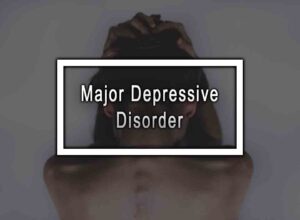Table of Contents
ToggleHere Are Some Key Facts About Antipsychotics
Welcome to an eye-opening journey uncovering the crucial aspects of antipsychotics that everyone should be aware of. As mental health issues gain recognition and understanding, it becomes increasingly important to shed light on the medications commonly used to treat conditions such as schizophrenia and bipolar disorder. In this article, we will delve into a listicle format, presenting five essential facts about antipsychotics. Let’s explore this intriguing world of mental health support and the role that antipsychotics play in it!
1. Understanding the Purpose of Antipsychotics
Antipsychotics have become cornerstones of psychiatric treatments for a range of mental disorders. They help manage symptoms like hallucinations, delusions, disorganized thinking, and emotional dysregulation. By targeting neurotransmitters in the brain, antipsychotics restore a balance that empowers individuals with mental health conditions to live fulfilling lives.
2. Different Types of Antipsychotics
Antipsychotics can be categorized into two main types: typical and atypical. Typical antipsychotics, also known as first-generation antipsychotics, were the pioneers in treating schizophrenia and related disorders. Atypical antipsychotics, developed later, offer a broader range of benefits and fewer side effects. It’s important to note that each individual’s response to antipsychotics may vary, and the choice of medication should be individualized.
3. Side Effects and Myth-Busting
While antipsychotics have revolutionized mental healthcare, it is crucial to acknowledge their potential side effects. Some common side effects include weight gain, sedation, dry mouth, and movement disorders. However, it’s worth noting that advancements in drug research and personalized treatment plans have significantly minimized these concerns. Often, the benefits of antipsychotic medications outweigh the side effects.
4. Collaborative Treatment Approach
Antipsychotic treatment involves a holistic approach combining medication, therapy, and social support. Medication serves as an essential tool to manage symptoms and stabilize an individual’s mental state. However, therapeutic interventions like cognitive-behavioral therapy (CBT), counseling, and support groups play a vital role in helping individuals develop coping strategies, improve self-esteem, and foster personal growth.
5. The Importance of Regular Review and Adherence
Once an antipsychotic treatment plan is initiated, regular check-ins with healthcare professionals are crucial. These reviews help monitor medication effectiveness, potential side effects, and any required adjustments. Additionally, adhering to the prescribed dosage and maintaining continuity in treatment aids in avoiding relapses and promoting long-term stability.
Conclusion
Antipsychotics are powerful tools in the fight against mental health conditions, offering individuals a chance at improved well-being. By embracing the knowledge presented in this article, you now understand the purpose, types, side effects, collaborative treatment approach, and significance of regular review and adherence concerning antipsychotic medications. Remember, open communication with healthcare professionals remains key to finding a personalized treatment plan that optimizes the benefits while minimizing any potential drawbacks. Together, let’s break the barriers surrounding mental health and embrace the journey toward a healthier, happier life.
Antipsychotics FAQ
Here are the most common questions about Antipsychotics.
1. Are antipsychotics only used for psychiatric conditions?
While antipsychotics are commonly prescribed for psychiatric conditions, they may also be used off-label to manage other conditions such as bipolar disorder, Major Depressive Disorder, anxiety disorders, and certain behavioral conditions.
2. How do antipsychotics work?
Antipsychotics work by blocking dopamine receptors in the brain. Dopamine is a neurotransmitter involved in regulating emotions, perception, and thought processes. By reducing the activity of dopamine in certain brain regions, antipsychotics help alleviate psychotic symptoms.
3. What are the common side effects of antipsychotics?
Common side effects of antipsychotics include weight gain, drowsiness, dry mouth, constipation, blurred vision, dizziness, and restlessness. Some antipsychotics may also cause movement disorders, such as tremors or muscle stiffness. It is important to discuss potential side effects with a healthcare professional.
4. Can antipsychotics be addictive?
No, antipsychotics are not addictive. They do not produce a euphoric high or lead to dependence when used as prescribed. However, abruptly stopping antipsychotic medication can result in withdrawal symptoms, and it is generally recommended to gradually taper off the medication under medical supervision.
5. How long do antipsychotics take to work?
The onset of action of antipsychotics can vary. Some individuals may experience a reduction in symptoms within a few days, while others may require several weeks or even months to see noticeable improvement. It is important to give the medication enough time to work and to follow the recommended dosage.












